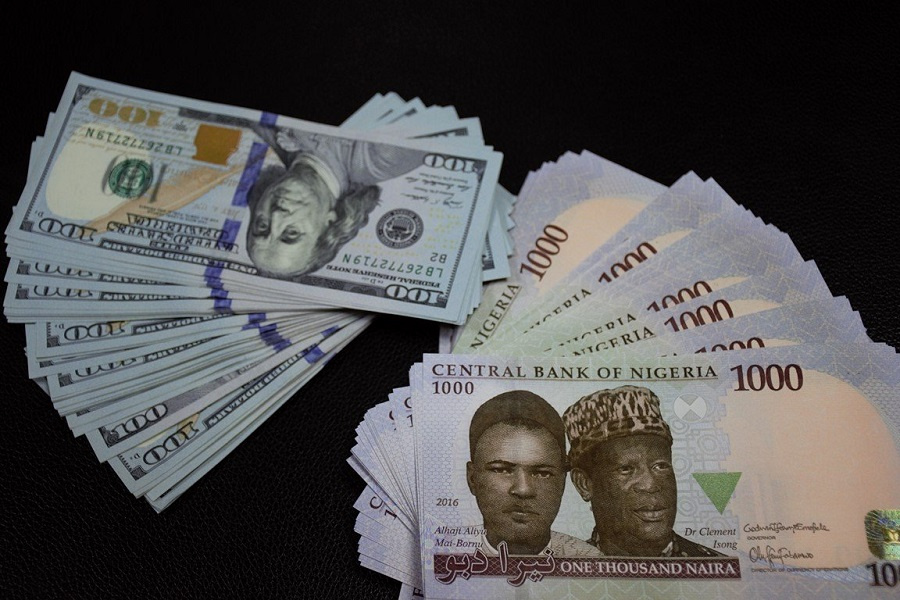Naira sinks, data shows CBN foreign payments jump by 11%

The naira dropped week on week in the foreign exchange market due to various contending market dynamics. The battle to save the soul of the local currency is still gathering steam as markets anticipate December FX automation to increase forex market governance; and reduce sharp practices and speculative trading.
The naira suffered 0.7% week-on-week depreciation to N1,678.87 per US dollar at the Nigerian Autonomous Foreign Exchange Market despite the CBN’s intervention, selling about US$51.00 million to authorized dealers.
Despite all efforts to reduce outflows of foreign currency, a recent report by the Apex Bank showed outflows expanded. Foreign currency outflow relating to Nigeria’s offshore payments increased by more than 11% year on year, the latest report by the Apex Bank revealed.
The Central Bank of Nigeria (CBN) reported that its international payments increased at a double-digit rate even after the devaluation of the local currency.
According to the data released by the CBN, international payments facilitated by the apex bank increased by 11.3% year on year to US$4.36 billion in the first seven months of the financial year 2024 from US$3.92 billion in the comparable period in 2023.
The sustained increase in foreign payments suggests that the devaluation of the local currency failed to reduce certain FX demand, especially for liabilities that had been locked ahead, though the exchange rate has worsened in multiple folds.
Further review of the numbers showed that the growth in foreign payments by the CBN was primarily driven by a significant increase in foreign debt service and payments, which soared by 53.6% year on year to USD 2.78 billion from USD 1.81 billion.
Part of the amounts upstream were repayments of matured multilateral and bilateral loans. Details in the report showed that foreign debt services and payment accounted for 63.8% of the total international payments in the period.
However, payments for letters of credit dipped by 57.0% year on year to US$391.91 million from USD 912.36 million in July 2023. Analysts at Cordros Capital Limited said this partly reflects lower imports amid weaker consumer demand induced by high inflationary pressures.
The Apex Bank report also revealed that direct remittances declined by 0.8% year on year to USD 1.18 billion due to decreased payments for international services by Nigerian residents. “We expect international payments to remain elevated, driven by the Federal Government’s debt repayment and servicing obligations,” Cordros Capital Limited said in its update.
Elsewhere, analysts said they expect payments for letters of credit to stay subdued as naira depreciation and fragile consumer demand induced by high inflation continue to suppress total non-oil imports.
FX reserves crossed the US$40 billion mark for the first time in 35 months, growing by USD270.10 million week on week to close at USD40.04 billion on Friday. Meanwhile, the total turnover at the NAFEM decreased by 12.8% to USD814.11 million on Thursday in the official window, with trades consummated within the N1,591.60 – N1,700.00 band.
In the forwards market, the naira rates decreased across one, three, six, and one-year contracts. The FX forward contract for one month depreciated by 0.9% to N1,714.79, and the three-month contract fell by -0.6% to N1,775.34 per US dollar. Six-month forward FX contract declined by -1.0% to N1,867.26 while the 12-month contract plunged by 0.9% to N2,042.33.
Cordros Capital Limited noted the sustained accretion in the FX reserves. Analysts highlight that the CBN’s conservative approach towards FX reserve depletion will continue to underpin moderate intervention in the FX market.
Source: dmarketforces.com





